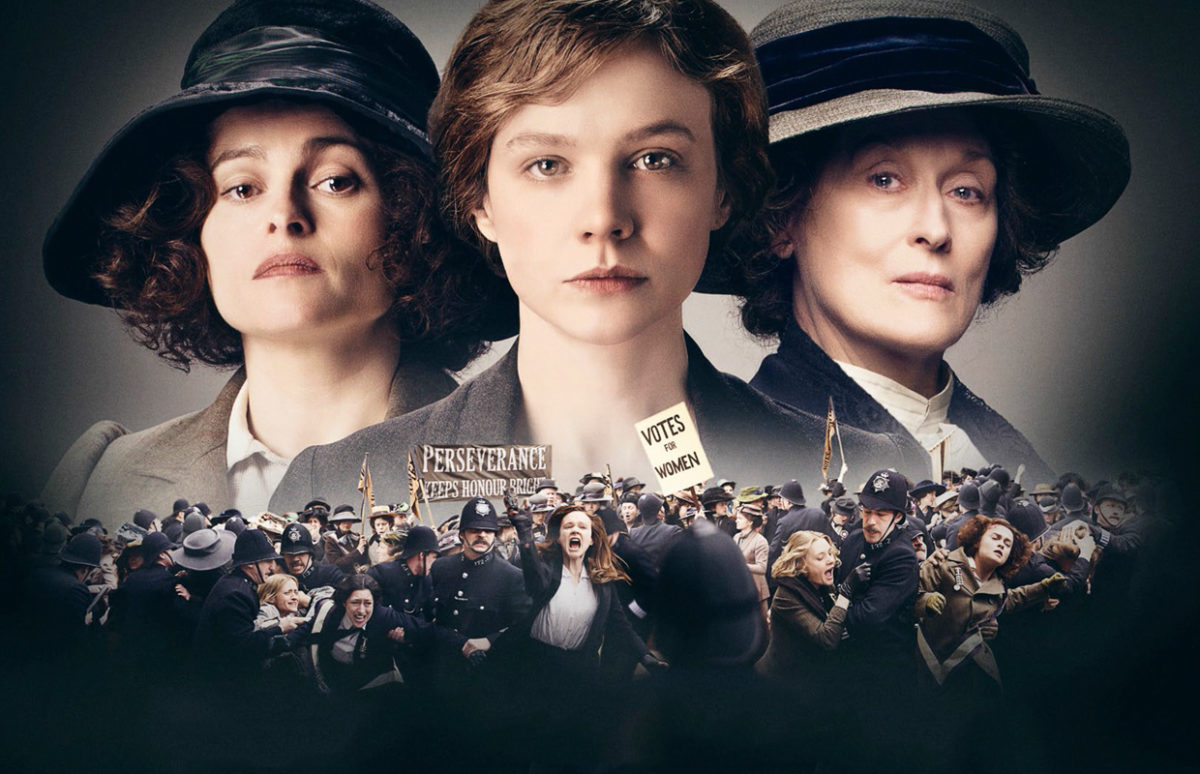The Suffragette campaign was one of the major civil-rights movements of 20th century Britain. It's amazing that 100 years after women finally got the vote, there had never been a film made about it!
Suffragette, starring Carey Mulligan (The Great Gatsby, An Education), Helena Bonham Carter and Meryl Streep, finally puts the Suffragettes centre stage.
The Suffragettes were a continuation of a series of women's campaigns to get the vote in Britain from the 1850s. Those early campaigns were very genteel and ladylike... and achieved no progress at all. In 1903, Emmeline Pankhurst and her daughters Sylvia and Christabel founded the Women's Social and Political Union (WSPU). In 1912, frustrated at being ignored or laughed at by the political establishment, the WSPU decided that direct action was necessary. Under the slogan "Deeds not Words", they chained themselves to railings, smashed shop windows and firebombed post boxes. These crimes against property (the WSPU never targeted people) brought the risk of arrest and more than 1000 suffragettes were imprisoned for their actions. Once in prison, they demanded to be treated as political prisoners. The authorities refused, so some women refused to eat. The government responded by brutally force feeding the women on hunger strike.

The term Suffragette was coined by The Daily Mail newspaper as a joke to describe the women fighting for universal suffrage, but it was soon accepted by the women themselves and made for catchy headlines reporting their civil disobedience.
Women United
Today, it is the upper-class Pankhursts who are the Suffragettes most remembered in Britain. There is a statue of Emmeline Pankhurst outside the Houses of Parliament. But if WSPU finally achieved its goal, it was because it managed to attract the support of hundreds of thousands of working class women. Suffragette focuses on Maud, a young married Londoner who works in an industrial laundry. With little education and long exhausting days of manual labour, housework and childcare, this abstract political cause seems far out of her sphere. But she is soon drawn to the energetic women and the promise of a future with at least a little more justice.

Maud is a fictional character based on a composite of real working-class women who rallied to the cause. The all-woman team of filmmakers wanted to focus on these anonymous masses rather than the leaders. But Emmeline Pankhurst does make a brief appearance, making a speech to a vast crowd outside the Houses of Parliament. And she is portrayed by Meryl Streep, after her acclaimed role as Margaret Thatcher in The Iron Lady. It's hard to imagine Mrs Thatcher approving of the Suffragettes' methods but without their actions, she would no doubt never have been Britain's first female Prime Minister.
Helena Bonham Carter, meanwhile, plays a formidable working-class woman based in part on Edith Garrud, who taught the suffragettes ju jitsu for self-defence. It's a nice twist to history: Bonham Carter's great grandfather, Lord Asquith, was Prime Minister from 1908 to 1916, and refused to consider votes for women.
However, the work women, and especially the WSPU, put in to help the war effort during WWI made that position untenable, and in 1918, property-owning women over 30 finally got the right to vote. In 1928, women got the same voting rights as men, a few weeks after Emmeline Pankhurst's death.
Tag(s) : "civil rights" "feminism" "lieux et formes de pouvoir" "Pankhurst" "votes for women" "voting"






